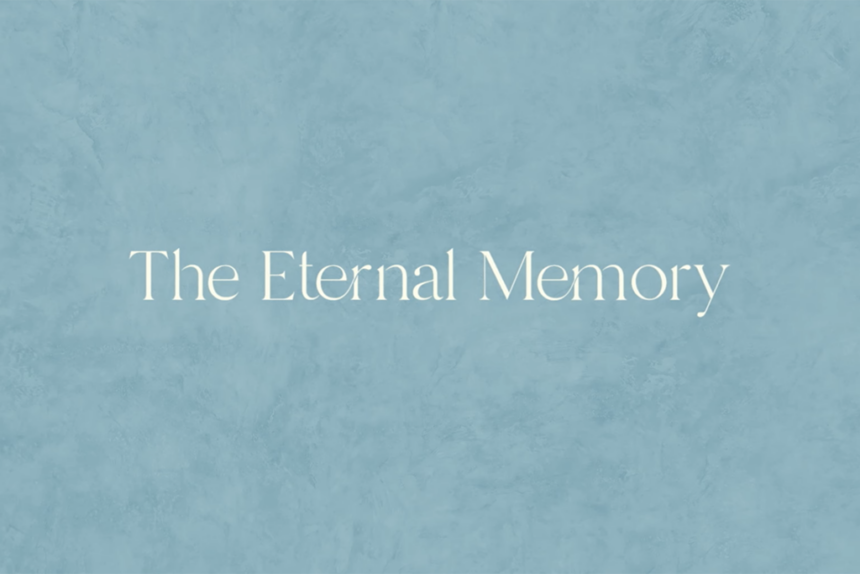Documenting the life of a patient living with severe cognitive issues is far from an easy task, but it is possible to do so in a way that is both thoughtful and compassionate.
For example, take the recent Wendy Williams docuseries.
If that is a prime example of how to not portray the story of a patient afflicted with a degenerative neurological condition, The Eternal Memory is the exact opposite.
The film is one of the five movies nominated for Best Documentary Feature Film at the 96th Academy Awards which will be held on Sunday night. Maite Alberdi, who was nominated for an Oscar in 2021, directed the film.
The Eternal Memory centers on a Chilean couple — journalist Augusto Góngora and actress Paulina Urrutia — and the impact of Góngora’s Alzheimer’s disease diagnosis, both on him as an individual as well as their relationship.
Aberdi and Urrutia were unable to comment on this story.
The film starts in the years leading up to the COVID-19 pandemic and continues through the crisis, presenting the escalating challenges to maintaining Góngora’s health as his cognitive functions continue to decline.
Critics and audiences have lauded the film for its tender and sincere depiction of a patient living with Alzheimer’s disease as well as a caregiver navigating the numerous complexities that accompany the situation.
Treating Alzheimer’s with tenderness
For those who may be unfamiliar with the complications related to Alzheimer’s, films documenting a patient’s journey through highs and lows can be as impactful as awareness campaigns launched by advertising agencies.
Monica Moreno, senior director of care and support at the Alzheimer’s Association, said watching The Eternal Memory reminded her of the critically-acclaimed 2014 film Still Alice. Julianne Moore won the Academy Award for Best Actress for her portrayal of a professor diagnosed with early-onset Alzheimer’s and the film significantly raised the profile of the disease following its release.
While that movie largely dealt with a patient’s diagnosis and progression of symptoms, she told MM+M that one of the most meaningful aspects of The Eternal Memory is its emphasis on Urrutia as a caregiver.
She said incorporating that perspective gives audiences a better understanding how the progression of Alzheimer’s and other dementias can impact relationships.
As Góngora’s cognitive abilities deteriorated during the pandemic, Urrutia took steps to keep him on a reliable routine of going on walks and even reading some of his favorite books to him.
“I thought it was wonderful in the way that she took steps to ensure that he was still able to do the things that he loved, even if it meant that she had to do part of that activity for him,” she said.
Caregiver stress, explored
The movie also underscores the erratic nature of the disease, including Góngora’s moments of panic and confusion towards the end of the day, a phenomenon known as “sundowning.”
Urrutia had to account for Góngora’s waning grasp on reality, such as when he talked to his reflection in the mirror as if it were his friend and demanded to see his adult children in the middle of the night.
She even removed a framed picture of the couple off the wall in his bedroom since he frequently mistook it as strangers watching him sleep.
After one incident where he was shouting, Urrutia broke down in tears the next morning — offering viewers a glimpse into the round-the-clock care and dedication required for an Alzheimer’s patient and how it can adversely affect the caregiver.
Moreno empathized with Urrutia’s challenges in assuming the caregiver role but also applauded the efforts she took to talk with him about their shared experiences and use that knowledge to engage him.
“I don’t know if she knows about person-centered care, but it was such a great dictation of how you use what you know about the individual and their life history in engaging with them every single day with every task that you may have to help them with,” Moreno said. “She did such a beautiful job.”
Oscar aside, impact is felt
Regardless of whether the film wins on Sunday, The Eternal Memory has made an indelible mark on the Alzheimer’s community through its storytelling.
Given the advances that have been made in terms of treating the disease and the continued investments in burgeoning drug candidates, Moreno said there is momentum in the space.
For an audience of medical marketers, she said other points worth highlighting in campaign work or through external communications is the importance of early detection, clinical trials to support dementia research as well as diverse representation in these efforts.
She noted that Black patients are more likely to develop Alzheimer’s disease, which means its critical to involve them in clinical trials.
Moreno also encouraged families affected by Alzheimer’s to seek out resources that can help them navigate life with the disease. One option is the Alzheimer’s Association’s online social networking community for caregivers, which has more than 20,000 members.
For an April 2024 article on how TikTok is shaping caregiving narratives for Alzheimer’s, dementia, click here.








